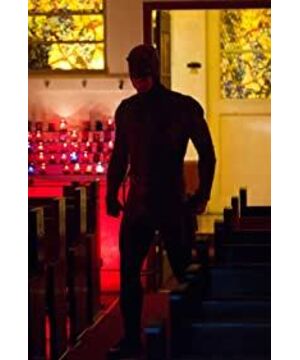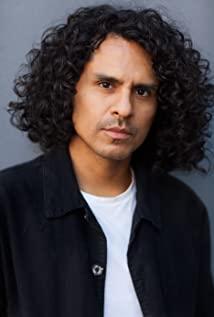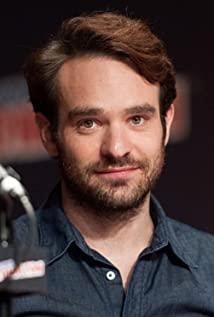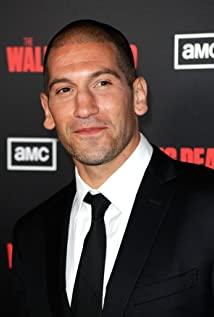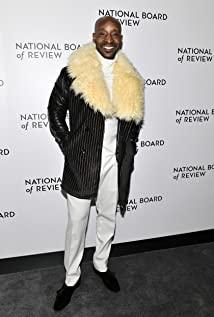Analysis of Daredevil vs Punisher in Season 2. Matthew is a lawyer by profession. He has been engaged in law for many years and converted to Catholicism, so that he understands the definition of justice and evil better than anyone, both theoretically and emotionally, and has his own set of principles for dealing with things. Compared to tying the murderer by hand, the first thing Matt has to do is to establish a clear self-positioning and the principle of not promiscuous lynching. He positioned himself as a sinner, not a punisher. That was his lifelong faith—the role the law should play. If your beliefs are swaying, you will inevitably act forward and backward, and you will be easily brainwashed by the villain. Naturally, it cannot take on the responsibility of protecting the citizens. And if the lynching is abused, life and death are forced beyond the law, and self-determination of good and evil, the result will be the same as Frank Cassel, the punisher in the second season, and will face criticism and controversy from the entire public opinion. From this point, Matt has the strong psychology and firm belief that a superhero must have. But how should this degree be grasped? Humans are collections of emotions. Matt is not a god either. He will eventually be bound by the world. And experienced many trials and tests that it brought. The reconciliation between the dual identities, the lack of skills to deal with, is a heavy burden on both the body and the mind. Friendship and love are his personal treasures, fairness and justice are his public pursuits. However, it is always difficult to have the best of both worlds, especially for Matt. The goddess of justice still needs to be blindfolded to ensure fairness, and it is almost unimaginably difficult for Matt to pursue the ideal of the gods who are extremely cautious with the body of a mortal. Abiding by the law is not only Matt's professional quality, but also the values he has learned and condensed into: any selfish ruling will eventually degenerate into disorderly riots. And this is the core theme of the second season. As a digression, I personally like the second season very much. It is extremely important to introduce two heroic characters, Punisher and Erica, and put a lot of effort into the inking. If the first season of defying Kim was not politically correct, then the second season of Daredevil vs. The Punisher is far more complicated than good versus evil. Why is the contradiction between the two of them more complicated than that of Jin? Because the two are very similar. It can be said that the Punisher is the violent version of Daredevil, and Daredevil is the Punisher with a bottom line. The boundary of the thunder pool between them is dangerous and fragile, and if you let your energy down, you will face overwhelming self-doubt and destruction. An irreconcilable contradiction arises between the two highly overlapping characters, if it is not the mutual intolerance caused by the subtle differences, or the deep confrontation separated by the slightest difference in ideology. Applied to these two, there is no doubt that it is the latter. In fact, their ideas seem to be separated by a fine line. It's a world of difference. The motives of Daredevil and Punisher are similar, but one is out of hatred for criminal behavior, and the other is the absolute defense of fairness and justice and the observance of the dignity of the law. Although the two are different, they have the same goal. The ultimate goal is undoubtedly to punish the evil and eliminate evil, and make the world clear. The attack on sin and the pursuit of justice make them fit together infinitely. The only difference is the emphasis.
They are all spontaneous city vigilantes, and their actions have caused widespread controversy in society. In fact, not only the Punisher has mixed reviews, but Daredevil has also been controversial. Of course, because Matt's secret work (masked) and combat style (secret hand-to-hand combat) are much more low-key than Frank's, coupled with the natural protection of his blind identity, it is the latecomers who are finally hung up in the daytime for social anatomy. frank.
Such a comparison shows that Daredevil's work is more complicated and the burden is heavier. One is because of his dual identities of light and shadow: in the daytime, he uses his head to punish punishment, and at night, he uses his fists and feet to suppress violence. Coupled with the bottom line of not killing, he can only incapacitate the criminal without harming the life of the criminal. It is equivalent to passively adding obstacles and requirements to yourself, increasing the difficulty. He chose to use reason instead of emotion to make judgments. Try to avoid the behavior out of control caused by the expression of personal emotions. In this regard, the Punisher is markedly different. The desperation transformed anger of Frank's loss of a loved one with the murder of his daughter and love, combined with his own iron-blooded character as a soldier, can easily go to extremes. The blessing of the two caused him to have no good feelings for criminals. It is reasonable to hate the pain. So it is understandable to go this route. But it contains a lot of his personal subjective emotions. It should be noted that Frank chose such a path of punishing evil by projecting his own empathy from his own experience to the public. Originally still out of selfish grudges, but in revenge his goals naturally became grander as he continued to send sinners to hell. What he took to kill the crime was extremely bloody, violent, without restraint, and without sympathy. He allows his personal will to cross the line at will, and arbitrarily judges the life and death of others above the law. He thought he was righteous, so he didn't feel anything wrong with his actions. this is correct. I am fighting crime and seeking justice for the society. There is no doubt that what he did made the criminal tremble and the evil retreated to the depths. His means meant complete end: There will be no worries, no more resurgence. The most direct is the most effective, the Punisher's deterrent to evil is immediate. Two heroes, one is the incarnation of reason and the other is the incarnation of emotion. They each have their own reasons, which are justified from both perspectives. From this point of view, the collision of their concepts is actually a contrasting conflict between legal principles and rationality. For crimes, should they be tried openly, fairly and impartially in accordance with legal procedures, or should they be given more rational and reasonable concerns. The trade-off between this is also a very prominent social issue now. An interception of a dialogue between Matt and Karen, which I personally think is the most exciting piece of literary drama in the second season, no one. Karen: Is there a difference between a person who saves others (Daredevil) and a person who puts an end to danger (The Punisher)? Matt: Frank Cassell should be locked up. He deserves a fair trial, but he kills. Karen: Yeah, bad guy. Kill his family, come after mine. Matt: But he can't decide who lives and who dies. That is God's decision. Sometimes, it's the jury. What happened to the Frank family was tragic, but he also had no right to kill. Karen: No no no, of course not. That was not what I meant. I mean, I can understand why Frank...why someone would choose revenge after a loss like that. Matt: No no no, it's different. Revenge is not justice. What he did was completely wrong. Karen: Rightly or wrongly, you can't deny that this works. Matt: Do you really think so? Karen: I don't know, no, maybe. Frank's approach is right or wrong, and the show doesn't give a perfect answer. Which of these is right and wrong is also worth considering by the audience. I think that's the deeper meaning that comes with the second season as well.
View more about Bang reviews


